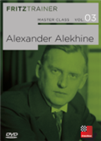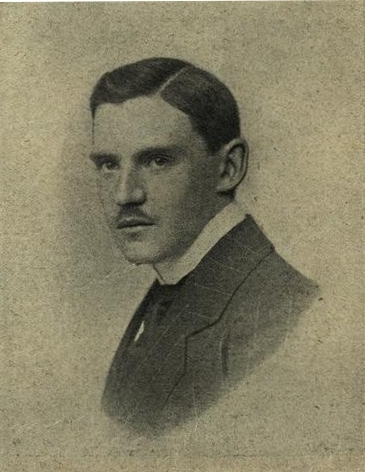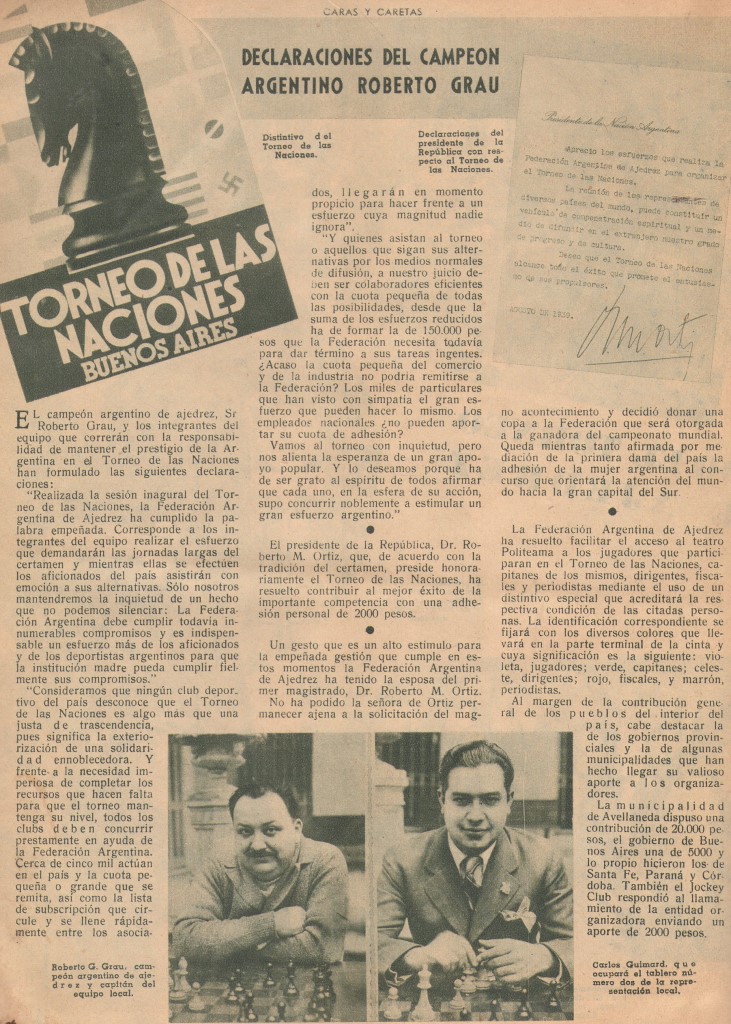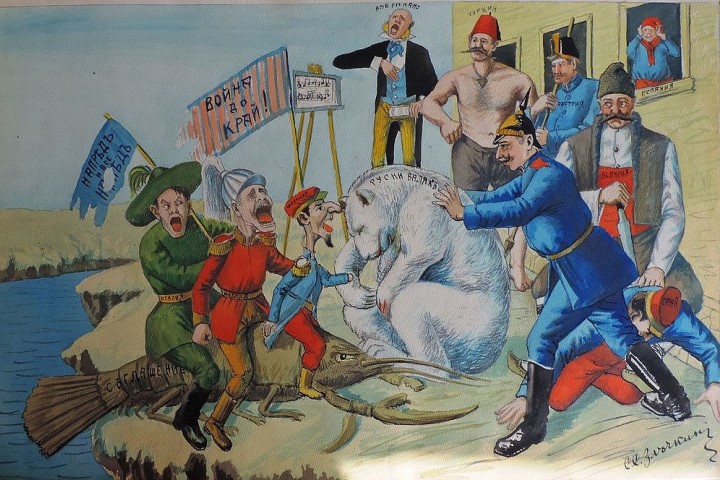Time to go home
Less than two weeks before the 2020 Candidates Tournament began in Yekaterinburg, Teimour Radjabov announced he would not be a part of the competition. The Azerbaijani feared a risk of Coronavirus infection potentially disrupting the tournament and requested FIDE to postpone the event.
As it happened, the event was cut short at half-time, when the Russian government announced that air traffic with other countries would be interrupted. The International Chess Federation informed that the results of the seven rounds played will remain valid, and the tournament will be resumed from round eight onward. Immediately, reactions disseminated on social networks wondered how things would proceed given the fact that Radjabov had raised a reasonable concern. Only time will tell.
By now, we know that Anish Giri and Maxime Vachier-Lagrave have returned home safely, while Fabiano Caruana is probably still on his way back to the States. It is more difficult to hear news from the Chinese players, the only other two non-Russian players participating, although Wang Hao did mention that he would first go to Japan before heading to Beijing via Shanghai.
Top chess players faced similar situations during the twentieth century, with some of them having to endure undue hassles when the World Wars broke out.
Mannheim 1914
The 19th Kongreß des Deutschen Schachbundes (known in English as DSB Congress) kicked off on July 20th, 1914 in Mannheim, a city located in Southwest Germany. The main event was the Masters, an 18-player single round robin with some of the strongest players of the time, including Alexander Alekhine, Frank Marshall, Siegbert Tarrasch and Rudolf Spielmann, among others — see here the ratings list for that month according to ChessMetrics. Two other events were taking place simultaneously, the Hauptturniers A and B.
 On this DVD GMs Rogozenco, Marin, Müller, and IM Reeh present outstanding games, stunning combinations and exemplary endgames by Alekhine. And they invite you to improve your knowledge with the help of video lectures, annotated games and interactive tests
On this DVD GMs Rogozenco, Marin, Müller, and IM Reeh present outstanding games, stunning combinations and exemplary endgames by Alekhine. And they invite you to improve your knowledge with the help of video lectures, annotated games and interactive testsAfter eleven rounds had been played, the tournament was interrupted on August 1st, the day Germany declared war on Russia. By then, Alekhine was leading the standings table on a 9½ score, having collected nine wins, one draw and one loss, against Dawid Janowski.
Here is when things got complicated for the group of players that would later be referred to as "the internees". As Edward Winter published in his Explorations (n.3540), Sergei Soloviov mentioned in his book The Fate of a Chess Player how eleven Russian players from the interrupted Mannheim tournament were interned by Germany after the declaration of war against Russia. He names them as Bogoljubow, Flamberg, Selesniev, Alekhine, I. Rabinovich, Bohatirchuk, Maliutin, Romanovsky, Weinstein, Saburov and Koppelman.
Some of them managed to return home rather quickly, most of them via Switzerland, while others remained in Germany — the most extreme case being that of Bogoljubov (1889-1952), who relocated in Triberg im Schwarzwald, where he married a local woman; he would then spend the rest of his life in Germany.
 Plenty of stories have been written on the subject, although those of Alekhine [pictured] and Marshall stand out. Alekhine gave an interview to the Vechernee Vremja of Petrograd either immediately after returning home or even earlier by telegram. Anthony Gillam, author of Mannheim 1914 and the Interned Russians, published the conversation with Alekhine at the Chess Café website, in which the fourth World Chess Champion declared:
Plenty of stories have been written on the subject, although those of Alekhine [pictured] and Marshall stand out. Alekhine gave an interview to the Vechernee Vremja of Petrograd either immediately after returning home or even earlier by telegram. Anthony Gillam, author of Mannheim 1914 and the Interned Russians, published the conversation with Alekhine at the Chess Café website, in which the fourth World Chess Champion declared:
There can be no account, no description of the moral and physical suffering that I endured and that many of my colleagues, the Russian chess players, are still experiencing.
Alekhine goes into detail about his misadventures, which were aggravated by the fact that the German soldiers suspected he was a Russian officer after seeing a picture in which he was wearing a uniform from the Law School of St. Petersburg. He would manage to return home by the end of October.
On the other hand, Marshall retold in his book My Fifty Years of Chess:
I made for the Dutch border and arrived in Amsterdam after many adventures. Usually a seven-hour trip, it took me 39 hours. Somewhere on the border I lost my baggage, containing all my belongings and the presents I received in St. Petersburg and elsewhere...Five years later, much to my astonishment, my trunks arrived in New York, with their contents intact!
Standings after Round 11 - Mannheim 1914
| # |
Name |
Points |
| 1 |
Alexander Alekhine (Russian Empire) |
9½ |
| 2 |
Milan Vidmar (Austria-Hungary) |
8½ |
| 3 |
Rudolf Spielmann (Austria-Hungary) |
8 |
| 4 |
Gyula Breyer (Austria-Hungary) |
7 |
| 5 |
Frank Marshall (United States) |
7 |
| 6 |
Richard Réti (Austria-Hungary) |
7 |
| 7 |
Dawid Janowski (France) |
6½ |
| 8 |
Efim Bogoljubov (Russian Empire) |
5½ |
| 9 |
Siegbert Tarrasch (German Empire) |
5½ |
| 10 |
Oldřich Duras (Austria-Hungary) |
5 |
| 11 |
Walter John (German Empire) |
5 |
| 12 |
Savielly Tartakower (Austria-Hungary) |
4½ |
| 13 |
Hans Fahrni (Switzerland) |
4 |
| 14 |
Ehrhardt Post (German Empire) |
4 |
| 15 |
Carl Carls (German Empire) |
3½ |
| 16 |
Paul Krüger (German Empire) |
3½ |
| 17 |
Alexander Flamberg (Russian Empire) |
3 |
| 18 |
Jacques Mieses (German Empire) |
2 |
Buenos Aires 1939
Alekhine was also playing at the 8th Olympiad taking place in Buenos Aires, Argentina starting on August 21st, 1939. World War II broke out eleven days into the event. By then, Alekhine was already representing France, one of 27 teams that made it to the South American country, a record at the time. The teams were first divided in four groups, with the top four of each group qualifying to the final stage.
 In 60 minutes you will get a crash course how to play such a complicated opening like the Sicilian Najdorf by the hands of GM van Wely who knows by experience how the dangers look like! The contents:
In 60 minutes you will get a crash course how to play such a complicated opening like the Sicilian Najdorf by the hands of GM van Wely who knows by experience how the dangers look like! The contents:
• Video 1, 2, 3: how to survive versus whites most aggressive approach: 6. Bc4, 6. Be3 and 6 Bg5
• Video 4: how to deal with the latest fashion in the Najdorf 6. h3 and last but not least
• Video 5: how to play vs the more classical set ups 6. Be2 and 6. g3Exactly when the sixteen squads that would battle for the medals were already decided and the Final was set to begin, Germany invaded Poland, leading to declarations of war by France and the United Kingdom — the Final kicked off on September 1st. The only team immediately abandoning the competition was England, as three of its players withdrew right away. An assembly was called to decide whether to keep going, and the delegates finally decided to go on.
Given the tensions between countries, six matches were declared drawn by mutual forfeit. In the end, Germany took the gold, as they finished a half point ahead of Poland and at a 1½-point distance from Estonia. The Germans were led by Erich Eliksases and Paul Michel; Poland had Savielly Tartakower (also present in Mannheim 1914) and Miguel Najdorf on top boards; while Paul Keres and Ilmar Raud played boards one and two for Estonia.
 As explained by Juan Morgado in his book about the event, El impresionante Torneo de Ajedrez de las Naciones de 1939, Argentine Roberto Grau played a big role in convincing players and authorities to keep the event going. Regarding the final results, Grau later declared:
As explained by Juan Morgado in his book about the event, El impresionante Torneo de Ajedrez de las Naciones de 1939, Argentine Roberto Grau played a big role in convincing players and authorities to keep the event going. Regarding the final results, Grau later declared:
We may have seen some unfair outcomes and the public's expectations might not have been met, but throughout a championship luck tends to even out and victory tends to be achieved by the most capable.
While in 1914 the chess players in Mannheim were stuck in a country directly involved in the war, in 1939 staying in Argentina was a way to escape the horrors of what was going on in Europe. Local authorities and helpful colleagues welcomed those who wanted to stay, which enriched the chess scene in the country — see here a list of the players that stayed.
The most prominent figure was Miguel Najdorf, who in the 40s was the second highest rated player in the world during 33 months according to Chessmetrics. Sergio Ernesto Negri and Enrique Julio Arguiñariz took a deeper look at the influence these players had on the Argentine chess scene in their book La generación plateada (The Silver Generation).
Final standings - Chess Olympiad 1939
| # |
Team |
Points |
MP |
+ |
= |
- |
| 1. |
Germany |
36 |
24 |
9 |
5 |
0 |
| 2. |
Poland |
35½ |
20 |
7 |
5 |
2 |
| 3. |
Estonia |
33½ |
18 |
7 |
3 |
4 |
| 4. |
Sweden |
33 |
17 |
7 |
2 |
5 |
| 5. |
Argentina |
32½ |
20 |
9 |
1 |
4 |
| 6. |
Protectorate of Bohemia-Moravia |
32 |
20 |
8 |
3 |
3 |
| 7. |
Latvia |
31½ |
21 |
9 |
2 |
3 |
| 8. |
Netherlands |
30½ |
18 |
6 |
5 |
3 |
| 9. |
Palestine |
26 |
14 |
4 |
5 |
5 |
| 10. |
France |
24½ |
10 |
1 |
7 |
6 |
| 11. |
Cuba |
22½ |
11 |
4 |
2 |
8 |
| 12. |
Lithuania |
22 |
11 |
3 |
4 |
7 |
| 13. |
Chile |
22 |
9 |
3 |
2 |
9 |
| 14. |
Brazil |
21 |
7 |
2 |
2 |
10 |
| 15. |
Denmark |
17½ |
5 |
2 |
0 |
12 |
| 16. |
England |
--- |
--- |
--- |
--- |
--- |
More info at OlimpBase.org
Best individual performances (by winning %)
- Board 1: José Raúl Capablanca (Cuba) - 8½ / 11
- Board 2: Heinz Foerder (Palestina) - 7½/10 - and Miguel Najdorf (Poland) - 9/12
- Board 3: Ludwig Engels (Germany) - 9½ / 11
- Board 4: Gunnar Friedemann (Estonia) - 10 / 13
- Reserve: Isaias Pleci (Argentina) - 9½ / 13
Links


















 Plenty of stories have been written on the subject, although those of Alekhine [pictured] and Marshall stand out. Alekhine gave an interview to the Vechernee Vremja of Petrograd either immediately after returning home or even earlier by telegram. Anthony Gillam, author of
Plenty of stories have been written on the subject, although those of Alekhine [pictured] and Marshall stand out. Alekhine gave an interview to the Vechernee Vremja of Petrograd either immediately after returning home or even earlier by telegram. Anthony Gillam, author of  As explained by Juan Morgado
As explained by Juan Morgado 




